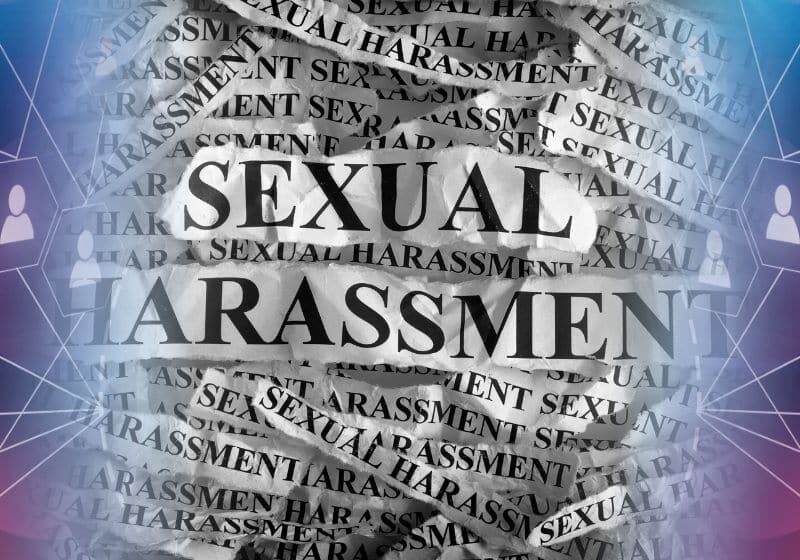Taking Action to Prevent Sexual Harassment

In light of recent high-profile workplace scandals, such as those involving Harrods, the BBC, and ITV, the #MeToo movement continues to influence business practices, particularly around sexual harassment in the workplace. Sexual harassment doesn’t only happen in big corporate organisations, it can happen in any business. The recent high profile cases only highlight the importance of safeguarding your business and we want to bring to your attention critical legal changes that will directly affect how you, as a business owner, must manage sexual harassment risks.
On the 26th October 2024, the Worker Protection (Amendment of Equality Act 2010) Act 2023 comes into force, introducing a new duty on employers to take proactive steps to prevent sexual harassment in the workplace. Failing to comply with this duty could not only lead to increased compensation claims but could also expose your business to regulatory scrutiny and damage your reputation.
What’s Changing?
Previously, employers were required to demonstrate that they took “all reasonable steps” to prevent harassment to defend against claims. This new legislation introduces a proactive duty—meaning employers must take reasonable steps to prevent harassment before it occurs. This marks a shift from reacting to complaints to actively working on prevention.
Employers who fail to meet this duty may face an uplift in compensation of up to 25% if a tribunal finds they didn’t take appropriate action. As this is falls under an act of discrimination, unlike unfair dismissals, there is no cap on compensation which means an uplift of up to 25% could result in significant financial risk. Additionally, as with race discrimination claims, the Equality and Human Rights Commission (EHRC) now has the authority to investigate, enforce compliance, and even seek court injunctions against non-compliant businesses in cases of sexual harassment. This in itself may have far reaching reputational damage.
Practical Steps for Your Business
With just over a few weeks until this new duty becomes enforceable, now is the time to act. Here are key steps you should consider to prepare your business:
- Review and Update Your Anti-Harassment Policy: Your policy must not only reflect a zero-tolerance stance on sexual harassment but also provide clear guidelines for employees on what constitutes harassment and how to report it. Ensure it’s well communicated and understood by all employees.
- Implement Clear Reporting Procedures: Make sure there are accessible channels for employees to report sexual harassment complaints confidentially. Employees must know where and how they can safely raise concerns.
- Provide Regular and Tailored Training: Training shouldn’t be a one-time, tick-box exercise. Conduct frequent training sessions tailored to different levels within your organisation—senior management, line managers, and all employees—ensuring they are aware of their responsibilities under the new law.
- Conduct Risk Assessments: Identify areas of your business where there may be a higher risk of harassment—such as remote work environments, events, or interactions with clients or third parties. Once identified, take proactive measures to mitigate these risks.
- Monitor and Improve: Keep track of any complaints or issues related to sexual harassment, and regularly review your policies and training programs. This will help you stay compliant and adapt your approach based on new challenges or risks.
Third-Party Harassment: Don’t Overlook External Risks
While the law currently does not hold employers liable for harassment by third parties, such as clients or customers, draft guidance from the EHRC suggests you should take reasonable steps to prevent third-party harassment. This could involve updating your policies to address how external interactions are managed and ensuring employees feel protected when dealing with non-staff individuals.
Why This Matters for You
By October 2024, the clock will run out on preparation. If your business is not seen to be actively addressing these new requirements, you could face serious legal and financial consequences. Taking action now demonstrates your commitment to creating a safe and respectful workplace, which in turn creates a positive business culture.
The legal landscape is evolving rapidly, and failure to comply will not only expose you to claims but could also damage your business’s reputation and erode employee trust. Now is the time to take action to ensure your business is compliant and ready for the challenges ahead.
How can HR:4UK help?
Start preparing now to ensure your business is compliant with the new legal requirements for preventing sexual harassment in the workplace. At HR:4UK, we specialise in helping business owners understand these critical changes by offering tailored support to ensure compliance with the Worker Protection (Amendment of Equality Act 2010) Act 2023.
Our comprehensive services include reviewing and updating your anti-harassment policies, conducting workplace risk assessments, providing tailored training for employees and managers, and implementing clear reporting procedures. We help you take proactive steps to create a safer and more respectful workplace, reducing the risk of costly claims and legal challenges.
Let HR:4UK take the stress out of compliance by managing every step of this process, protecting your business, and ensuring you meet the new legal obligations before they come into force in October 2024.
As our mission is to provide you with the insights and resources needed to keep your business compliant and safe. To support you in navigating the new duty for sexual harassment, we are hosting a dedicated webinar:
Webinar Details: Title: Sexual Harassment: From Awareness to Action
Date: 17th October 2024
Time: 11:00 AM
We’d be delighted to have you join us. Register now to join the Sexual Harassment: From Awareness to Action webinar.
Contact us today on 01455 444222 or email to discover how we can assist you in staying compliant and creating a harassment-free workplace.
Angela Clay
A qualified employment law solicitor and our managing director, Angela has unparalleled legal expertise and decades of experience and knowledge to draw from. She’s a passionate speaker and writer that loves to keep employers updated with upcoming changes to legislation, and is a regular guest speaker on BBC Leicester Radio.




